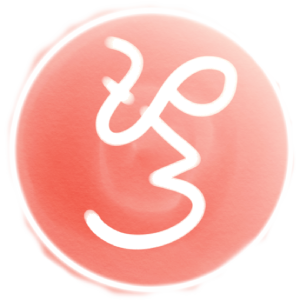The first documented reference (that I’ve found) is a Humans of New York interview^[Facebook link to the same HONY feature]. He didn’t elaborate on any system, but he spoke about learning, educating himself and furthering himself outside of any major.
“I met people at college that I could bounce ideas off. People who could challenge me to go further with my interests. […] They’d tell me: I notice you have a strong ability for ‘such and such,’ and I’d love to see you develop it further. So that’s what I did. Even though I majored in business, I found myself learning all about history and economics. Right now I’m reading a book about the Haitian Revolution. It has nothing to do with my major, but it’s important to me. ”
This September 2025, I learned from Threads that TikTok creators were giving themselves a “fall curriculum”. Their approach was to picking three or so subjects to study, research, or just read about for the sake of curiosity and learning. But the linked Threads poster adapted it to fit her personal goals more closely, which involved dance class and content creation.
Adaptations
- vesica — a personal curriculum
- “The daily journal of a medical student. Contained within are clinical pearls and pitfalls, diagnoses and differentials, evidence and uncertainty, hypotheses and heuristics, reflections and revelations, questions and quandaries, theories and tangents, notes and nuances, and the occasional victory. Content is a mixture of medicine, literature, PC gaming, politics, music, language, botany, sailing, micromastery, lifekit, and anything else encountered in the search for a personal renaissance.”
- Developing a “personal curriculum” and looking for a lot of things. : r/suggestmeabook
Personal applications
a personal curriculum project — solo or community approaches
I previously had an idea seed for a twice-a-year creative project hub, sort of a spiritual successor to the community projects I/we lost with Inktober and NaNoWriMo. The idea was for people to pick their own projects and expected outputs, but we would all follow roughly the same timeline (a month). I’m inspired to tie in that idea seed with the idea of a personal curriculum.
Loose structure:
- Three semesters involving one month of planning, and two months of studies
- June, July-August
- September, October-November
- December (break)
- January, February-March
- April-May (break)
- Each semester can be a research semester or a project semester, and will have an optional, self-directed “final”: a practical output, a research paper or reflection paper.
- The research semester can still have a practical output as a final, for example a simple website for a Web Development course, but the project semester usually implies you spend the entire semester schedule working on the project rather than just the final weeks.
- One semester involves 1-3 courses. These courses may or may not be intersectional to one another, depending on the plan of study. This also helps direct the final output, as it may be 3 smaller finals instead of one large one.
- A course should be topical and have realistic challenge or difficulty (Introductory, Intermediate, Advanced). It should realistically fit in six to eight weeks, including any self-given assignments or research. Ideally, there should be a planned series of reading or viewing to follow.
- Relevant: Bloom’s taxonomy
